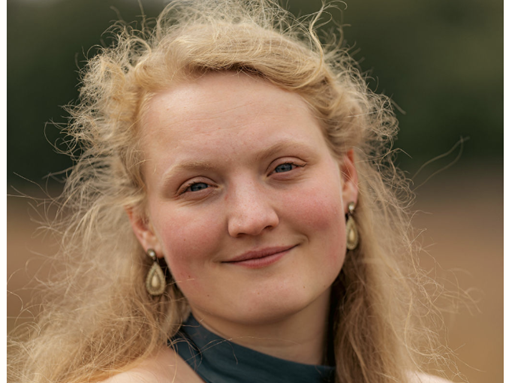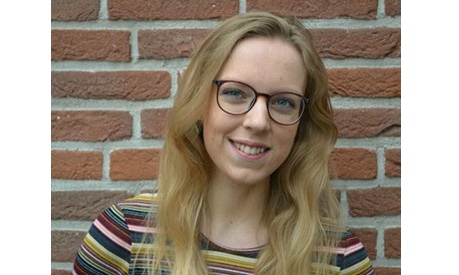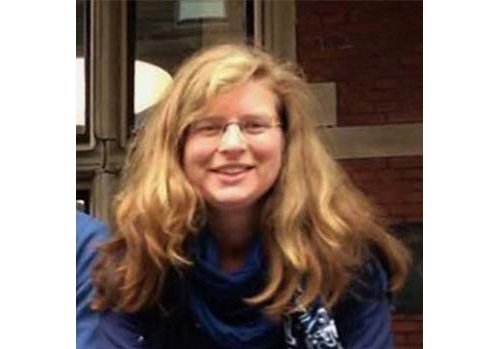
The Classics track of the MA in Classics & Ancient Civilizations offers education in a wide range of skills to the aspiring classicist: from in-depth analysis of all aspects of a Greek or Latin text to interdisciplinary and thematic studies of important facets of Classical Antiquity.
The Classics track is a highly flexible interdisciplinary one-year programme, offering a variety of research-led courses on Greek and Latin literature, language and culture.
You can enter the programme with or without prior knowledge of Greek or Latin, and can tailor your studies to your interests. We offer courses both in the original languages and in translation. Specializations include:
You will write a thesis and take an interdisciplinary course , on the interface of literary studies with ancient history or classical archaeology. You may also integrate ancient history courses and organize a placement.
Our alumni are skilled writers and have an eye for detail as well as the bigger picture. They are sought-after employees in many fields, including education, publishing, the cultural sector, journalism and the government.
The programme is taught in English; Dutch-speaking students may produce their written work in Dutch.
The programme is also offered on a part-time basis. For information, contact the study advisor (studieadviseur.gltc rug.nl)
All students write a thesis on a topic related to Greek or Latin literature and its reception, supported by a thesis and methods course. They also follow an interdisciplinary course in translation, on the interface of literary studies with ancient history or classical archaeology. Recent examples include: Landscape and Memory, and Text, Language and Religion.
Beyond this, they are free to choose from a wide range of
courses at Groningen itself or taught within the Masterlanguage
programme of Dutch universities. The offering typically
includes
- A course on a Latin subject. Recent topics include: Exemplarity
in Roman Imperial Literature, Ethno-biography, Late Antique Latin
Poetry
- A course on a Greek subject: Recent topics include: Tragic Women,
Ecphrasis and the Visual Imagination, Friendship in Ancient
Literature
- a course on the interaction of ancient and modern literature (in
translation), e.g. Tragedy from Ancient Greece to the Present
(2023-2024)
- Beginners' Latin
- Beginners' Greek
- two research seminars in Ancient History
- further courses on Latin and Greek literature
(Masterlanguage)
- courses on Latin and on Greek epigraphy (Masterlanguage)
- courses abroad at the Royal Netherlands Institute in Rome and the
Netherlands Institute at Athens
- courses in archaeology, religion, and other relevant areas.
| Semesters | ||||
|---|---|---|---|---|
| CoursesCourse Catalog > | 1a | 1b | 2a | 2b |
| Master placement (10 EC, optional) | ||||
| Thesis & methods course (5 EC) | ||||
| Interdisciplinary course (5 EC) | ||||
| Ancient history research seminar (10 EC, optional) | ||||
| Beginners' Greek (10 EC, optional) | ||||
| Beginners' Latin (10 EC, optional) | ||||
| Thematic course Greek (10 EC, optional) | ||||
| Thematic course Latin (10 EC, optional) | ||||
| Greek Epigraphy (Masterlanguage) (5 EC, optional) | ||||
| Latin literature (Masterlanguage) (5 EC, optional) | ||||
| Tutorial Greek epigraphy (historical or literary) (5 EC, optional) | ||||
| Tutorial Latin epigraphy (historical or literary) (5 EC, optional) | ||||
| Greek literature (Masterlanguage) (5 EC, optional) | ||||
| Latin epigraphy (Masterlanguage) (5 EC, optional) | ||||
| Tutorial Greek epigraphy (historical or literary) (5 EC, optional) | ||||
| Tutorial Latin epigraphy (historical or literary) (5 EC, optional) | ||||
| Ancient history research seminar 2 (10 EC, optional) | ||||
| Interaction ancient and modern literature (10 EC, optional) | ||||
| Interdisciplinary research seminar (Faculty courses) (10 EC, optional) | ||||
| Master's Thesis (15 EC) | ||||
| Tutorial Greek epigraphy (historical or literary) (5 EC, optional) | ||||
| Tutorial Latin epigraphy (historical or literary) (5 EC, optional) | ||||
In addition to the range of course units provided by this track itself, students can also follow Masterlanguage courses. Masterlanguage is a national programme that offers courses for students of European languages, but also of Greek and Latin. The courses are jointly organized by lecturers from Radboud University, the University of Groningen, Leiden University, Utrecht University, the University of Amsterdam and VU University Amsterdam. More information about the courses, entry requirements and registration can be found on the Masterlanguage website: https://masterlanguage.nl/nl/. You may follow Masterlanguage courses in consultation with the Board of Examiners of your Master's degree programme.
You can also choose to do a placement. Such placements offer students the opportunity to gain work experience and orientation in the labor market. You can do a placement at an institution, organization or company in the Netherlands or abroad, e.g. a museum, a library, or a research school. It would be your responsibility to find a placement yourself, but the Office for Student Affairs can offer help where necessary.
| Programme options |
|---|
| Latin and Greek Literature (specialization) You will follow your own interests in putting together your programme. A mentor will help you in making your choices. You can choose to keep your programme broad, or select one of the specialisations. Students enter the programme with BA-level Greek and Latin. They specialise in Greek and Latin literature by taking a Greek and a Latin literature course as well as writing a thesis on a Latin literature topic. They also take the interdisciplinary course. They can fill out their programme by, for example, taking a course on ancient and modern tragedy in translation, studying Roman history or archaeology, or taking one of various other relevant courses, including those taught at the NIA and KNIR. |
| Language consolidation (specialization) You will follow your own interests in putting together your programme. A mentor will help you in making your choices. You can choose to keep your programme broad, or select one of the specialisations Students whose Bachelor programme only had limited emphasis on language-learning, and who perhaps wish to prepare themselves for future PhD applications, can focus on reading texts in the original and strengthening their language. They may choose in particular from the various Greek and Latin literature and epigraphy courses. If necessary, they can choose to learn one of the languages from scratch. |
| Classics and the modern world (specialization) You will follow your own interests in putting together your programme. A mentor will help you in making your choices. You can choose to keep your programme broad, or select one of the specialisations Students write their thesis on a reception topic and take the ancient and modern literature course.. Depending on their interests and the availability of teaching staff with relevant expertise, they may also take reception-focused tutorials in conjunction with some of the literature and ancient history courses. Further options include: a placement in a museum or organization, courses from modern-focused MA programmes, Greek or Latin for Beginners. as potentially courses from the Literary Studies MA. |
| Educational specialisation (specialization) You will follow your own interests in putting together your programme. A mentor will help you in making your choices. You can choose to keep your programme broad, or select one of the specialisations Students who after the MA wish to continue with a teacher's training programme will choose at least one Greek ánd one Latin literature course in the original. Together with the thesis, thesis & methods course and the interdisciplinary course these courses are mandatory for admission to the teacher's training programme |
Contact for more information on studying abroad: study advisor drs. R.P. van der Borg (studieadviseur.gltc rug.nl).
| Specific requirements | More information |
|---|---|
| previous education |
Student with a Bachelor's degree in Classics, Archaeology or History from a Research University are directly admissible to this Master's programme. Students with a different Bachelor's degree from the Faculty of Arts at the University of Groningen, who have completed the pre-Master/ Minor Classics and Ancient Civilization (30 ECTS) are also admissible to the Master's track. |
| language test |
Additional requirements English: A VWO diploma or a subject certificate for VWO English (mark 6 or higher), minimum requirement of TOEFL iBT 90 (with a minimum of 21 on all items), or IELTS 6.5 (with a minimum of 6 on all items) or Cambridge C1 Advanced or C2 Proficiency. |
| other admission requirements |
Prior knowledge of Greek and/or Latin is not a requirement since we offer courses both in the original and in translation, as well as language acquisition courses. However, for students wishing to pursue the Educational Specialisation to become school teachers in the Netherlands, there are mandatory courses that are only open to students who in the opinion of the Board of Examiners have sufficient command of Greek and Latin. Students with a Dutch Bachelor's Degree in Classical Studies satisfy this condition. |
| Study programme | Organization | Transition |
|---|---|---|
| English Language and Culture | University of Groningen |
Additional requirements More information:With a Pre-Master/ Minor (30 ECTS) in Classics and Ancient Civilization. |
| American Studies | University of Groningen |
Additional requirements More information:With a Pre-Master/ Minor (30 ECTS) in Classics and Ancient Civilization. |
| International Relations and International Organization | University of Groningen |
Additional requirements More information:With a Pre-Master/ Minor (30 ECTS) in Classics and Ancient Civilization. |
| Arts, Culture and Media | University of Groningen |
Additional requirements More information:With a Pre-Master/ Minor (30 ECTS) in Classics and Ancient Civilization. |
| Media Studies | University of Groningen |
Additional requirements More information:With a Pre-Master/ Minor (30 ECTS) in Classics and Ancient Civilization. |
| Frisian Language and Culture | University of Groningen |
Additional requirements More information:With a Pre-Master/ Minor (30 ECTS) in Classics and Ancient Civilization. |
| Middle Eastern Studies | University of Groningen |
Additional requirements More information:With a Pre-Master/ Minor (30 ECTS) in Classics and Ancient Civilization. |
| European Languages and Cultures | University of Groningen |
Additional requirements More information:With a Pre-Master/ Minor (30 ECTS) in Classics and Ancient Civilization. |
| Linguistics | University of Groningen |
Additional requirements More information:With a Pre-Master/ Minor (30 ECTS) in Classics and Ancient Civilization. |
| Art History | University of Groningen |
Additional requirements More information:With a Pre-Master/ Minor (30 ECTS) in Classics and Ancient Civilization. |
| Communication and Information Studies | University of Groningen |
Additional requirements More information:With a Pre-Master/ Minor (30 ECTS) in Classics and Ancient Civilization. |
| Information Science | University of Groningen |
Additional requirements More information:With a Pre-Master/ Minor (30 ECTS) in Classics and Ancient Civilization. |
| Study programme | Organization | Transition |
|---|---|---|
| Classics (part-time) | All Research universities | No additional requirements |
| History (part-time) | All Research universities | No additional requirements |
| Archaeology | All Research universities | No additional requirements |
| Type of student | Deadline | Start course |
|---|---|---|
| Dutch students | 15 August 2025 | 01 September 2025 |
| 15 August 2026 | 01 September 2026 | |
| EU/EEA students | 01 May 2026 | 01 September 2026 |
| non-EU/EEA students | 01 May 2026 | 01 September 2026 |
| Specific requirements | More information |
|---|---|
| previous education |
Student with a Bachelor's degree in Classics, Archaeology or History from a Research University are directly admissible to this Master's programme. Students with a different Bachelor's degree from the Faculty of Arts at the University of Groningen, who have completed the pre-Master/ Minor Classics and Ancient Civilization (30 ECTS) are also admissible to the Master's track. |
| language test |
Additional requirements English: A VWO diploma or a subject certificate for VWO English (mark 6 or higher), minimum requirement of TOEFL iBT 90 (with a minimum of 21 on all items), or IELTS 6.5 (with a minimum of 6 on all items) or Cambridge C1 Advanced or C2 Proficiency. |
| other admission requirements |
Prior knowledge of Greek and/or Latin is not a requirement since we offer courses both in the original and in translation, as well as language acquisition courses. However, for students wishing to pursue the Educational Specialisation to become school teachers in the Netherlands, there are mandatory courses that are only open to students who in the opinion of the Board of Examiners have sufficient command of Greek and Latin. Students with a Dutch Bachelor's Degree in Classical Studies satisfy this condition. |
| Type of student | Deadline | Start course |
|---|---|---|
| Dutch students | 15 August 2025 | 01 September 2025 |
| 15 August 2026 | 01 September 2026 | |
| EU/EEA students | 01 May 2026 | 01 September 2026 |
| non-EU/EEA students | 01 May 2026 | 01 September 2026 |
As a graduate, there are many career options open to you. If you wish to apply your knowledge of the ancient world and its research, you may work in an academic library or in museums.
Following this one-year also does not exclude the option of becoming a teacher of Classics in secondary school; you can obtain a qualification by following the one-year postmaster LHVO at the college of education (NB this postmaster requires a minimum level of proficiency in Dutch: NT2 programme II).
The skill set of a classicist is highly valued elsewhere, too. Typically, our graduates have a keen sense of language, good writing skills, a critical and analytical mind; having been trained to overview an ancient society in its many aspects, you will be able to reflect on culture and society. You can therefore also work in journalism, the cultural sector, publishing or the civil service.
Research and teaching are closely integrated in this programme. As you study for the MA you will be in close contact with current staff research. For details of that research see our research website.

Hai! My name is Pascalle van Setten, I am 22 years old and I am following the Classics track of the Master Classics and Ancient Civilizations. Besides studying, I also work as a Greek and Latin teacher at a secondary school, and in between those commitments I am busy with the study association Boreas, and I like to write.

As someone who loves the classics I have been very happy doing the Bachelor Greek and Latin Language and Culture. I continued my education in Groningen because I liked the ambiance at the university and the focus on the cultural aspect as well as the languages. I wanted to become a teacher, but at the same time I wanted to enrich my academic view on Antiquity. Therefore I decided to do the Education Master which consists of 60 ECTS Classical Studies and 60 ECTS didactics, to get the best of both worlds.
Freedom and
independance
A nice thing about this Master is the large
extent of freedom you’ll get. A small number of courses is
obligatory, but besides those you can choose courses from other
studies like Archaeology, Philosophy or Ancient History. There are
also possibilities outside the RUG: take for example the Master
Language programme, in which I took the Greek Epigraphy
course.
Most of these courses are research courses and this means you can largely decide your own topic and research area. This will enhance your motivation and your ability to find out where your strong points and preferences lie – something which education is all about, I think. I have noticed that I’m interested in religion and poetry, and I’ve really enjoyed developing this further during the classes/
During this Master you’ll have very few classes: I have to go to class 6 hours a week on average. Most of the work has to be done by yourself and therefore requires a lot of independence and planning. Besides, as wonderful as they are, the classical languages are a lot of work and at times rather difficult. But teachers will always be willing to help you and due to the small scale there is a lot of contact between students. It also means you learn on your own to analyse critically, research literature properly and set up your own research. So if you take all these things into consideration, you will be alright and you will be in possession of a diploma that shows you have a lot of extensive knowledge and an ability to work hard!

I found this degree programme challenging and diverse. You don't only learn Greek and Latin; other aspects of life in Antiquity are covered in great detail, for example philosophy, as well as archaeology. After the Bachelor's phase, I started following the Master of Arts in Teaching programme and followed a placement at a school for a few months. Because I didn't really enjoy teaching, I switched in the first half of the second year to the Master's in Classics and Ancient Civilization, choosing the Greek and Latin Languages and Cultures track.
In my final semester I did a placement at the Groningen Archives, in the department which organizes activities for the general public. This was the most interesting department for me, given my experiences in education. I showed school pupils and students around the archives and helped them with their study projects.
I don’t know yet what I will eventually end up doing, but as long as I’m working with languages, cultures and/or in education, I’ll be happy. I’m currently working on call for an educational publishing company and for a company that is developing a digital learning environment. Both jobs are temporary, but I’m gaining experience and it’s helping me to decide whether I want to continue in the publishing world. It’s perfectly possible that I’ll end up somewhere totally different!
Are you interested in a research oriented career? Please have a look at our Research Master's track in Classical, Medieval and Early Modern Studies